Speakers

Dr. Allan Bayat
Allan Bayat is a Danish pediatric neurologist specialised in neurodevelopmental disorders and epilepsy genetics. His research focuses on deep-phenotyping of GRIA disorders, understanding the link between GRIA mutations and symptoms, conducting natural history studies, and advancing towards precision therapy.

Dr. Timothy Benke, MD, PhD
Dr Timothy Benke is a pediatric neurologist at the Children’s Hospital of Colorado and a professor of pediatrics, neurology and pharmacology at the University of Colorado. In addition to seeing several patients with GRIN disorders, he is leading the efforts in partnership with Dr. Traynelis to develop a registry with a symptomatic questionnaire of GRIN patient families that could form the basis for a broader natural history study. The goal is to correlate function from Dr. Traynelis’ lab with phenotypic data collected by Dr. Benke to inform personalized medicine approaches. Dr. Benke has extensive clinical experience and publication record regarding the phenotypic characterization of rare neurogenetic disorders. He has experience creating and collaborating with large groups of clinicians and scientists to characterize and treat rare neurogenetic disorders. He created the Rett Center of Excellence for Rett and CDKL5 syndromes at Children’s Hospital Colorado. He is well-versed in clinical research and directs research in the Neurosciences Institute at Children’s Hospital Colorado.

Dr. Derek Bowie
Dr. Derek Bowie earned his doctorate from the University of London, held postdoctoral fellow positions at the Université Louis Pasteur (France), University of Zurich (Switzerland) and the National Institutes of Health (USA) before joining the faculty at Emory University in Atlanta. He joined McGill in 2002 and is currently a Full Professor and Director of GEPROM, a FRQS-funded research group of McGill, Concordia and Université de Montréal. He serves/served on the editorial boards of several periodicals (e.g. Journal of Physiology, Current Neuropharmacology, European Journal of Neuroscience).
The Bowie Lab studies the two major neurotransmitter receptors of the brain, namely ionotropic glutamate receptors and GABA-A receptors. Both receptor families are widespread in the vertebrate brain and fulfill many important roles in healthy individuals as well as being implicated in disease states (e.g. autism, epilepsy, Alzheimer's disease). These receptors are studied to understand how they shape neuronal circuit behaviour and how they may be targeted to treat CNS disease.
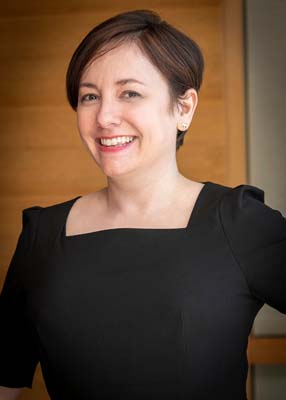
Danielle Boyce
Danielle Boyce is the Education Director for the Tufts University Biomedical Health Data Science Collaborative (BHDSC), where she leads the growth of a multidisciplinary educational program, including developing trainings on reproducible research and FAIR data principles and trainings to enable researchers to access informatics resources offered by Tufts CTSI, and leads research training experiences to foster broad collaboration in the biomedical research community.
Danielle serves as a Biostatistician in the Biostatistics, Epidemiology and Research Design (BERD) Center, an Investigator in the Center for Quantitative Methods and Data Science in the Institute for Clinical Research and Health Policy Studies (ICRHPS) at Tufts Medical Center, and an Assistant Professor of Medicine at Tufts University School of Medicine. She also serves as an adjuct professor at Johns Hopkins University Biomedical Informatics and Data Science section and the West Chester University School of Public Policy and Management.
Danielle has a master’s in public health with a concentration in epidemiology and a doctorate in public administration. She is a veteran biostatistician, data scientist, and informaticist with more than 25 years of professional experience including more than a decade at Johns Hopkins University. Danielle has held advisory roles for the Food and Drug Administration, the Centers for Disease Control and Prevention, the Critical Path Institute, the Patient-Centered Research Outcomes Institute (PCORI), the International League Against Epilepsy, and dozens of patient advocacy groups and communities. Her research interests include rare and neurodegenerative diseases. Her work is inspired by her 14-year-old son, Charlie, who had infantile spasms and, now, Lennox-Gastaut syndrome.

Wendy Chung
Wendy Chung, Chief of Pediatrics at Boston Children's Hospital, leads Simons Searchlight, directing cutting-edge genetic research and studying the intricate relationship between behavior, brain structure, and function in individuals with genetic variants linked to autism spectrum and related neurodevelopmental disorders. As the principal investigator, she not only manages the expansive research program, but dedicates herself to exploring innovative treatment avenues. Dr. Wendy Chung also spearheads the identification of novel autism-related genes, showcasing her pivotal role in advancing our understanding of neurodevelopmental disorders and serving as a visionary force in pediatric healthcare.
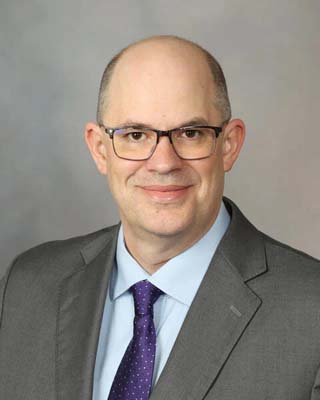
Keith A. Coffman, M.D.
Keith A. Coffman, M.D., is board certified in Child Neurology and Neurodevelopmental Disabilities with expertise in pediatric-onset movement disorders and Tourette Syndrome.
Dr. Coffman attended medical school at the Pennsylvania State University College of Medicine. He completed his training in Pediatrics, Child Neurology and Neurodevelopmental Disabilities at Children's Hospital of Pittsburgh. He then obtained research training in Systems Neuroscience at the University of Pittsburgh.
Dr. Coffman's clinical practice focuses on the treatment of pediatric-onset movement disorders, Tourette Syndrome, and children with neurodevelopmental disorders. His research interests align with his clinical practice expertise.
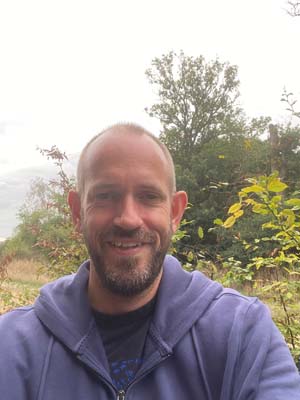
Ian Coombs
My work at University College London endeavours to understand the AMPA-type glutamate receptors which are encoded by the genes GRIA1-4. By examining the properties of both healthy and variant AMPARs, predominantly using electrophysiology, my current focus is to understand the molecular mechanisms of GRIA Disorder. The goal is to identify and help develop the most appropriate therapies to combat the disease.
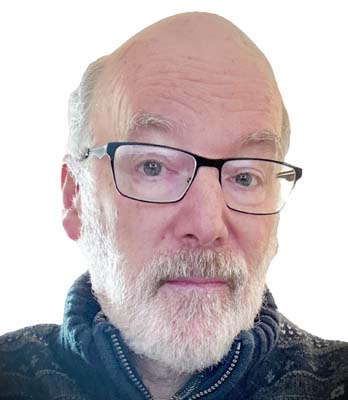
Wayne Frankel, Ph.D.
Wayne Frankel, Ph.D. is a Professor at Columbia University Irving Medical Center (New York, NY) in the Center for Translational Research in Neurodevelopmental Disease (CTRND). After having earned his Ph.D. in Genetics from Albert Einstein College of Medicine (Bronx, NY), and trained as a postdoctoral fellow at Tufts University Medical Center (Boston, MA), in 1992 he began his lab at The Jackson Laboratory (Bar Harbor, ME) to research neurological diseases – primarily epilepsy - through the study of genetic mouse models. In 2015 he relocated to Columbia to join the Institute for Genomic Medicine, which in 2023 morphed into the CTRND. At Columbia his emphasis is on the severe epilepsies of childhood collectively known as Developmental and Epileptic Encephalopathy, by using genetically engineered mouse models in which to develop and test gene therapies. In 2024 Dr. Frankel began a phased retirement, working mostly remote from his home in western Massachusetts on these and related projects, closely with the laboratory of Center colleague, clinician-scientist Dr. Tristan Sands.

Dr Ángeles García-Cazorla
Dr Ángeles García-Cazorla is a Paediatric Neurologist at the Sant Joan de Déu Barcelona Children's Hospital, in Barcelona. She is an expert in rare neurometabolic and neurogenetic disorders.
Dr Cazorla obtained her degree in Medicine from the University of Barcelona. She then completed her clinical and scientific training in Inborn Errors of Metabolism and Neurometabolic Disorders at the Hospital Necker, in Paris, and at the University of Columbia in New York.
She is currently the Head of the Neurometabolic Disorders Unit and the Director of Research and the “Brain Project” at Sant Joan de Déu Hospital. She is a member of the SSIEM Council, and the coordinator of the subgroup of neurotransmitters and other small molecules affecting the brain at the MetabERN (European Reference Network of inherited metabolic disorders).
Her research interests include neurotransmission and the “metabolic environment of the synapse” in inborn metabolic diseases as well as the development of new therapies for these rare diseases. She is currently leading the synaptic metabolism and personalized therapies laboratory in Sant Joan de Déu Hospital. She is a professor and the director of the International Master of Neurometabolism and Cell Biology for Clinicians at the University of Barcelona.
She has published more than 250 peer-reviewed articles in the field of paediatric neurology and neurometabolism and is co-editor of the reference book “Inborn Errors of Metabolism: diagnosis and treatment” from Springer.

Dr Maggie Kalev
Dr Maggie Kalev is a hematologist-scientist affiliated with the University of Auckland (UoA) in New Zealand and serves as a hematopathologist at Auckland City Hospital. She holds an MD from the Pomeranian Medical School in Poland, complemented by a Hematology Fellowship from the Royal College of Pathologists of Australasia and a PhD in Molecular Medicine from the UoA.
Dr Kalev uncovered novel mechanisms of blood production and studied gene editing and NMDA receptor signaling during her post-doctoral fellowship at the Translational Neuroscience Laboratory (UoA; 2003-2008). Since 2009, Dr Kalev has led a research laboratory dedicated to the biology of platelets and their precursors, megakaryocytes. Her team's recent discoveries have unveiled an intriguing role of NMDA receptor-mediated calcium signals in regulating platelet production and function.
Dr Kalev's current focus is investigating whether dysregulation of platelet production could yield peripheral blood biomarkers for patients with GRIN disorders. Such biomarkers could revolutionize patient monitoring and facilitate the evaluation of novel therapeutic interventions.

Carolyn Komich Hare, M.S., CTBS
Carolyn Komich Hare, M.S., CTBS, serves as Autism BrainNet's Clinical Director. In this role, Carolyn works directly with donor families to facilitate the donation process and conduct essential clinical interviews. She is a former special education teacher, certified ADI-R Trainer and research clinician who has dedicated her career of nearly 30 years to learning from neurodiverse communities. Prior to working with Autism BrainNet (and its legacy Autism Tissue Program), Carolyn founded Achieving in Higher Education with Autism and Developmental Disabilities (AHEADD) as well as the Arts for Autism Foundation of Pittsburgh. Outside of work, Carolyn is raising a family in Pittsburgh, enjoys reading and spending as much time as possible outdoors.
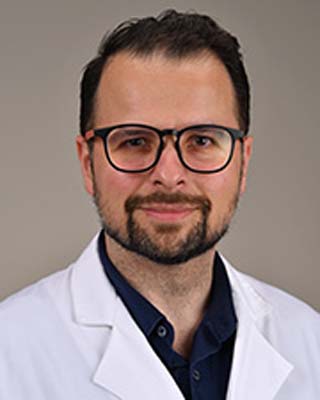
Dennis Lal, PhD, Associate Professor, Center Director for Neurogenetics
Dr. Lal has held various positions throughout his career and received numerous honors and awards for his research contributions. He has been involved in large-scale genomics research consortia and serves as a scientific advisor for several rare genetic epilepsy family foundations. In addition, he has led bioinformatic analysis groups in major epilepsy genomic research projects. Dr. Lal is an active member of professional societies, including the American Society for Human Genetics and the International League against Epilepsy Genetics Consortium.
His contributions to science include the discovery of disease genes associated with epilepsy, studies on epilepsy copy number variants, studies on somatic genetic variants in human brain tissue, and polygenic risk, and investigations into the genetics of neurodevelopmental disorders. Dr. Lal and his team have developed various computational methods, tools, and online resources to aid in interpreting and translating genetic variants. He has successfully guided several BS, MS, and Ph.D. candidates in receiving their degrees and established several educational initiatives such as the ‘precision medicine fellowship’ and several bioinformatic and clinical genetics application workshops to educate early career and established neurologists in genetics and precision medicine.
Overall, Dr. Dennis Lal is an accomplished researcher and educator in genetics and clinical neurogenetics, devoted to enhancing our comprehension of brain disorders through genomic research and its application in clinical care. As the Director of the Center for Neurogenetics at UTHealth Houston, he is continuing his ongoing research program and, clinically, is facilitating the utilization of genetic tests and advanced genetic test interpretation at the neurological institute to establish gene-informed precision medicine clinical trials.

Dr. Johannes Lemke, MD
Dr. Johannes Lemke is Director of the Institute of Human Genetics and the Center for Rare Diseases as well as professor of Human Genetics at the University of Leipzig, Germany. His clinical and research focus is on the genetic background of epilepsy disorders, especially of epileptic encephalopathies. Dr. Lemke has published extensively on different aspects of GRIN-related disorders and aimed for a precise delineation of the associated phenotypes. For this purpose, Dr. Lemke and his team collected data on hundreds of published and unpublished individuals with GRIN-related disorders in a patient registry.

Michael A. Panzara, MD, MPH
Michael A. Panzara, MD, MPH is currently Chief Medical Officer at Neurvati Neurosciences. Dr. Panzara has over 22 years of biopharmaceutical experience focused on developing therapies for neurological disorders having served in leadership roles at Wave Life Sciences, Sanofi, Genzyme, and Biogen before joining Neurvati in 2022 and currently serves on the Boards of Directors of Athira Pharma, Inc and Cadenza Bio, Inc. Prior to joining Neurvati, he was Chief Medical Officer, Head of Therapeutics Discovery and Development at Wave Life Sciences where he oversaw Wave’s therapeutic research and development portfolio with a focus on genetically-defined diseases. He served as the Head of the Multiple Sclerosis, Neurology and Ophthalmology Therapeutic Area for Global Development at Sanofi Genzyme, where he oversaw global regulatory approvals of the multiple sclerosis (MS) drugs LEMTRADA (alemtuzumab) and AUBAGIO (teriflunomide) and was responsible for development strategy and oversight within these therapeutic areas. He joined Genzyme in 2009 as Group Vice President, Multiple Sclerosis and Immune Diseases, overseeing the development of MS and other inflammatory disease therapies. Prior to joining Genzyme, Dr. Panzara was Vice President and Chief Medical Officer of Neurology at Biogen. During his time there, he served as the global clinical lead for the development of TYSABRI (natalizumab) for MS, overseeing its clinical program and global approvals and managed clinical development activities for all late-stage MS products including AVONEX (interferon beta-1a), PLEGRIDY (PEG-interferon beta-1a), and TECFIDERA (dimethylfumarate). Dr. Panzara received his undergraduate degree in biology from the University of Pennsylvania and medical degree from Stanford University School of Medicine. He trained in neurology at Massachusetts General Hospital, received his post-doctoral training in immunology and rheumatology at Brigham and Women's Hospital, and received his Master of Public Health degree from the Harvard School of Public Health.

Dr. Kristen Park
Dr. Kristen Park is a graduate of the University of North Carolina – Chapel Hill (go Tarheels!) and Mayo Medical School. She did her pediatrics and neurology training at the Children’s Hospital of Philadelphia followed by an epilepsy fellowship at Children’s Memorial Hospital in Chicago. Since that time, she has been practicing as a Pediatric Epileptologist at Children's Hospital of Colorado where she also directs the fellowship training program. Her research interest in neurogenetics arose out of participation in several collaborative efforts in the early stages of genetic testing for epilepsy, namely the Epilepsy Phenome Genome Project and the Epilepsy Genetics Initiative. Currently, she is the co-medical director for the Neurogenetics clinic which serves as a local and regional referral center for advanced diagnostic evaluations. She is also the lead neurologist for the GRI Center of Excellence and has been involved in the GRIN natural history study since 2019. She has participated in a number of other team science initiatives in rare diseases including the Clin-Gen gene-disease curation panel for epilepsy, the Human Epilepsy Project, and a network of neurologists/neurosurgeons studying mosaicism in structural causes of intractable epilepsy.

Amy Ramsey, PhD, University of Toronto
Dr. Ramsey earned her BSc in Microbiology at the University of Kentucky, and her PhD in Genetics and Molecular Biology at the University of North Carolina at Chapel Hill. After postdoctoral training at Duke University Medical Center, she joined the Department of Pharmacology & Toxicology within the Faculty of Medicine, where she is an Associate Professor. Her research focuses on the biology of NMDA receptors and the role that they play in brain disorders such as schizophrenia, autism, and epilepsy. Most recently, she has worked with patient advocates for GRIN disorder to help find effective treatments and cures for this rare genetic condition.
Dr. Ramsey teaches in PCL470, Systems Pharmacology, and is course coordinator and lecturer for PCL200, Drugs and the Brain. PCL200 was first offered in 2017 and is designed as a breadth course to introduce neuropharmacology to non-science majors and first-year science majors. The course is meant to destigmatise brain disorders and help students understand the positive and negative aspects of recreational drugs and prescription medications. Guest speakers from within the Faculty of Medicine, including Dean Young, answer questions that the students have about depression, anxiety, sleep, cannabis, and addiction. More importantly, students learn the fundamentals of neuropharmacology that enable them to subsequently answer their own questions about drugs that affect the brain.

Tristan Sands, MD, PhD
Tristan Sands, MD, PhD is an assistant professor of neurology at Columbia University Irving Medical Center (CUIMC) in the Division of Child Neurology.
Dr. Sands completed his child neurology residency at the University of California, San Francisco under the mentorship of Dr. Roberta Cilio and epilepsy and clinical neurophysiology fellowships at Columbia University Irving Medical Center under the tutelage of Dr. Cigdem Akman and Dr. James Riviello.
Dr. Sands is a pediatric and neonatal neurologist and epileptologist with clinical and research focus on seizures, epilepsies and developmental and epileptic encephalopathies resulting from genetic causes. His work has described how de novo KCNQ3 variants are responsible for a novel form of neurodevelopmental disability. His research into treatments for genetic epilepsies has demonstrated that benign neonatal seizures caused by mutation of the KCNQ2 and KCNQ3 genes show a universal response to carbamazepine and that early use of carbamazepine reduces the length of hospital admission for these newborns.